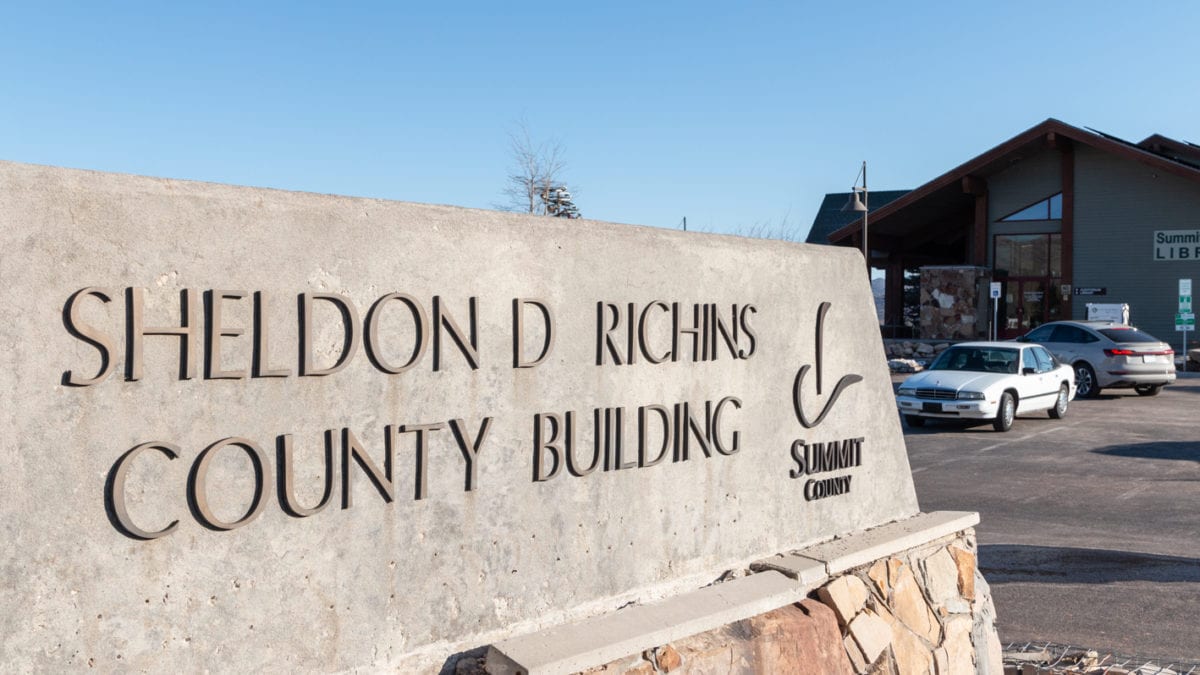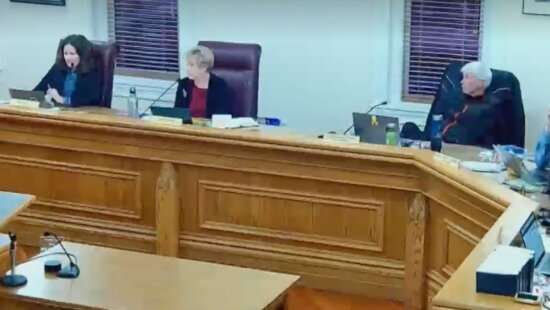Politics
Summit County draft ordinance would halt nightly rental license issuance until Jan. 2, 2023

The Sheldon Richins Building. Photo: TownLift // Bailey Edelstein
SUMMIT COUNTY, Utah — On Wednesday the Summit County Council is scheduled to discuss and possibly adopt an ordinance that would halt the issuance of new nightly rental licenses until January 2, 2023.
The council has expressed interest in drafting new rules to contain the proliferation of short-term rentals, and the six-month moratorium would be established “to avoid an influx of Nightly Rental licenses during the period before any possible amendment is enacted.”
Year-to-date 2022, Summit County has issued 916 such licenses. For comparison, 699 were issued throughout the entire calendar year of pre-Covid 2019.
Existing licenses would not be affected and the law would only be in place in unincorporated Summit County.
Summit County leads the state, with 21.5% of total housing units being short-term rentals, according to the University of Utah.
The item is scheduled to be discussed at 4:25 p.m. on Wednesday. The council will be meeting at the Richins Building in Kimball Junction (Zoom link).
A working group consisting of council members and county staff will be formed to review and consider issues and options, according to the draft ordinance.
At a meeting earlier this month, the county council expressed support for the following ideas that could be included in the new law, which would be embedded within the licensing process:
• Placing additional requirements on or prohibiting short term rentals in neighborhoods with high wildfire risks.
• Amending the Code to create overlay zones and permitting short term rentals in zones where short term rentals would be consistent with neighborhood character.
• Limiting numbers of overnight guests.
• Limiting the numbers of days per year a residence may be used as a short term rental.
• Creating different levels of licenses for short term rentals based on the zone, number of days per year the rental will be used as a short term rental, and whether the short term rental is owner-occupied.
• Requiring an owner or agent to be available 24/7 and live within a specified distance or time from the residence.
• Requiring a short term rental permit to be obtained annually.
• Requiring owners to post their licenses on every listing for the rental and inside the rental.
• Amending the Code to create overlay zones and to require the Planning Department to review and approve short term rental licenses. Permit Planning to add conditions of approval. Consider requiring approval of:
1. Adequacy of off-street parking
2. Compliance with International Building Code and International Fire Code standards adopted by the State of Utah for small hotels if a rental accommodates a certain number or more guests or exceeds certain square feet.
3. At a minimum, requiring compliance with basic safety requirements, including fire suppression or detection devices, carbon monoxide detectors, marked exits.
4. Requiring all short term rentals to be accessible to emergency vehicles, e.g. consider grade or surface of road
5. Imposing ADA requirements on certain rentals – perhaps those that would qualify as small hotels.
6. Imposing significant financial and/or other penalties for non-compliance with noise, guests, parking or other restrictions or requirements.
7. Requiring owners to post “Good Neighbor” guidelines and a Code of Conduct in each rental.



















